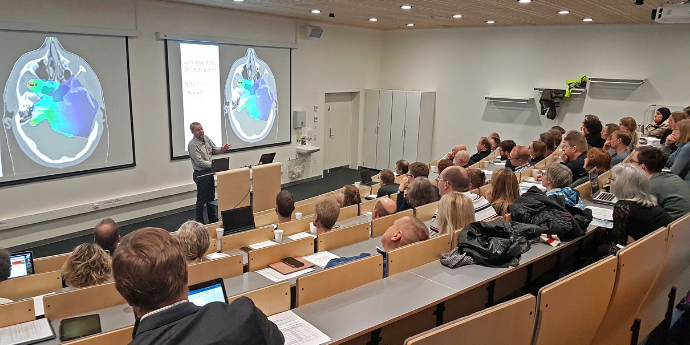
The research group based at the Danish Centre for Particle Therapy is actively engaged in a number of national and international research networks and collaborations. Please find more information below.
Contact
Phone and E-mail
Reception Phone: (+45) 7845 6400, Monday-Friday 07.30-14.45
E-mail: dcpt@rm.dk
Contact information for management and research staff members can be found here.
Follow us at LinkedIn
Address
The Danish Centre for Particle Therapy
Aarhus University Hospital
Palle Juul-Jensens Boulevard 25
DK-8200 Aarhus N
Entrance B3